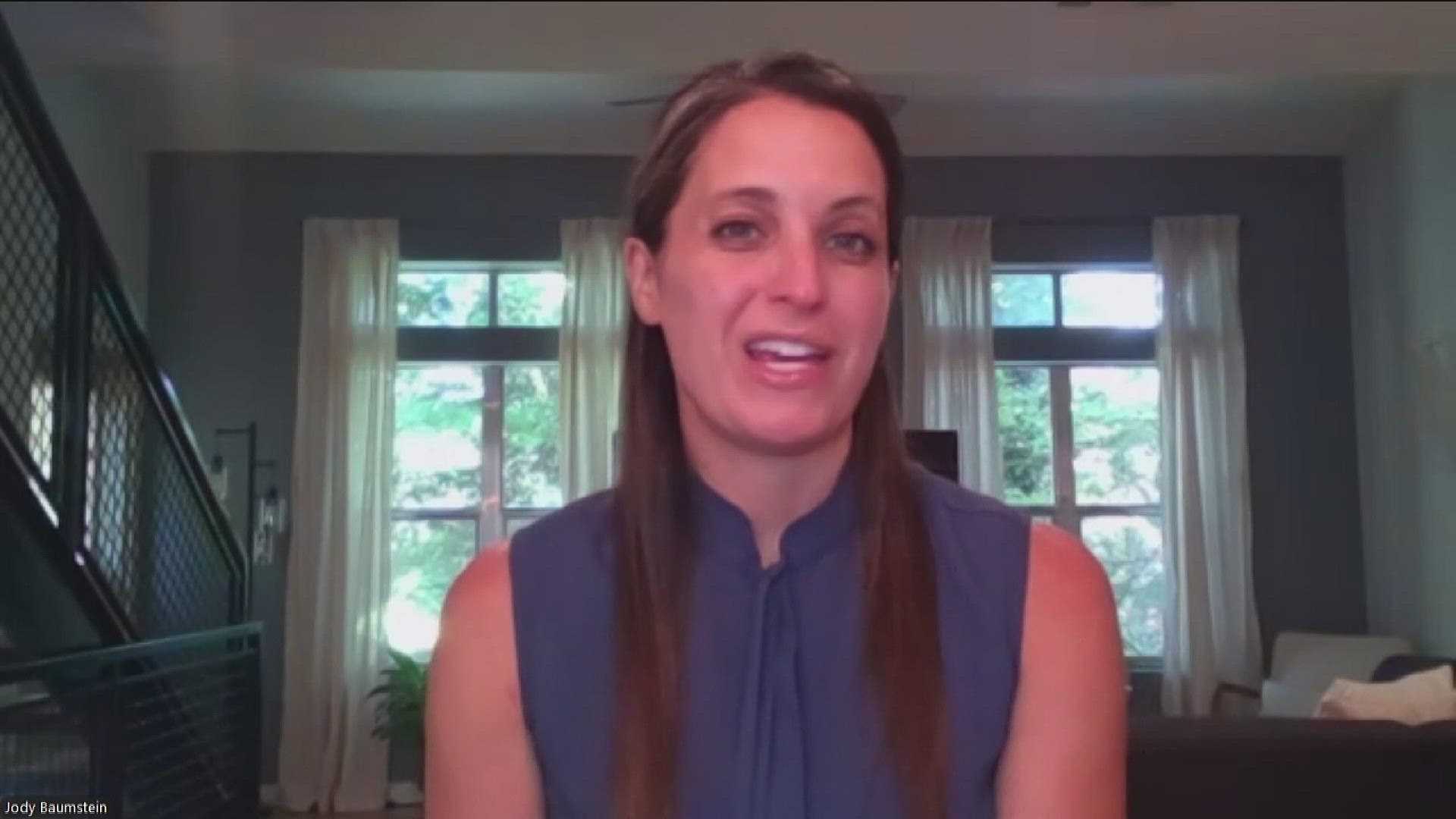BARROW COUNTY, Ga. — In the wake of the deadly shooting at Apalachee High School, 11Alive spoke with Jody Baumstein, a licensed therapist with Children’s Healthcare of Atlanta Strong4Life, to get advice on how to speak with children who are returning to school.
"What's really important to remember is that you don't have to directly experience something traumatic to have a response to it, so even kids who have maybe just heard about this might have a response. And it's really normal for us to see this increased worry and fear, maybe some clinginess. That's really common, and that could occur for a couple of weeks," she said.
"What we really want to be paying attention to is, are symptoms persisting? Are they becoming really intense, or is it even starting to affect your child's functioning? So that might look like a child who is frequently having a lot of stomach aches or headaches with no known medical cause, or maybe they're now avoiding people, places or things that are reminding them of what happened. They're no longer engaging in activities they used to enjoy. They're withdrawing, they're really irritable, and this is really lasting for a while or affecting their ability to engage in their normal behaviors. That's when we want to make sure that we are getting it checked out."
Baumstein gave her top tips for talking to kids after a tragedy:
Have conversations
"This first is to make sure that we're having regular conversations because, unfortunately, this will not be the only scary thing that kids experience. So, we want to make sure we're creating a foundation of connection. And that means we can't just wait until big things happen to have a conversation because it won't really feel comfortable. So make it a routine, make it something that's really familiar where you are checking in regularly and having a conversation so that it just becomes part of your family culture."
Validate feelings
"We want to make sure that when we're engaging in these conversations, we're being honest because there's going to be a real urge to want to take away their pain. We see somebody who's uncomfortable, scared, and we naturally want to jump in and fix it, but we have to remember our goal is not to fix their feelings. It's to be in it with them and make them feel less alone. And us telling them not to worry about something, don't be scared, it doesn't actually make them feel better. It just makes them feel like they shouldn't feel that way and leaves them really alone in it. And so, if we want them to become adults who know how to handle lots of different feelings, we have to show them you can tolerate this feeling. It's uncomfortable, it's painful, but it is temporary. It will pass. And so, we want to make sure we're really validating whatever experience they have. It makes sense that you feel that way. It's normal to feel scared. This is scary. We want to validate and normalize that experience."
Healthy coping strategies
"There's an opportunity always to be teaching kids healthy ways to cope because there are lots of stressors that they'll experience, and so helping them understand there are these maintenance kinds of strategies, things we can be doing regularly to make life a little bit less stressful and manage our moods and emotions, and so that might mean getting good quality sleep, good nutrition, plenty of movement, physical activity.
Especially during a time like this, we want to make sure we're limiting our exposure to media. If we are receiving those constant alerts and notifications and we're always looking at it, it keeps us in a really heightened state, and that makes it really hard to focus, to sleep, to engage in normal activities. So setting some real hard limits on that. As a family, we're doing a screen-free meal where we're making sure that at least 60 minutes before bed, we're turning off all electronics. These are good practices in general.
We can also be teaching kids kind of in the moment, strategies they can use if their anxiety is ticking up and they're feeling really overwhelmed, and that can be as simple as teaching them how to plant their feet on the floor, take deep breaths, use their senses to ground them and bring them back into the present moment, and just helping them to learn that they can control their attention, they can regulate their emotions. This builds their confidence and ultimately builds their resilience."
When to get help
"It can be really confusing when we're trying to figure out what's normal and what's something we should be concerned about. And it's important that you remember you know your child. If your instincts are telling you something is just not right, they're really struggling, don't wait until it escalates. Go and get a consultation. Talk to a licensed mental health professional because they can help you figure it out and tease out what's normal. And we just want to kind of keep an eye on it and what's something we really might need to support right away.
We really need to shift this narrative around mental health services. We would never wait if our child was struggling in a physical way; we would take them to the doctor. And when it comes to mental health, we need to have that same approach. Don't wait until it's a crisis. Show your kids that asking for help, expressing our emotions, connecting with other people is not weak, it's strong, it's brave, and it's really resilient. And when we reach out for help, we're giving other people permission to do the same."

